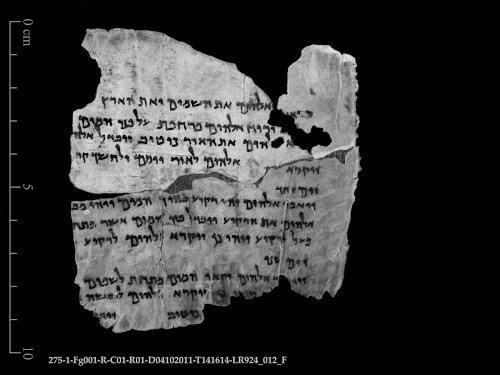Continuing its work to help scan and preserve ancient texts, this morning, Google announced that it has been working with the Israel Antiquities Authority to bring a large collection of biblical manuscript fragments online, including the earliest known copies of the Book of Deuteronomy, which includes the Ten Commandments; part of Chapter 1 of the Book of Genesis, and hundreds more 2,000-year old texts focused on the life and teachings of Jesus.
The digitized collection is being hosted at the Leon Levy Dead Sea Scrolls Digital Library, which includes around 5,000 images of these ancient scroll fragments.
The move follows Google’s efforts last September, when it launched the the Dead Sea Scrolls online, a project of The Israel Museum, Jerusalem, which initially debuted with five digitized Dead Sea Scrolls. The high-resolution photographs of up to 1,200 megapixels let visitors zoom into the documents to see even the most minute detail. That project, like today’s, was powered by Google technology.
On the new website, the manuscripts are displayed as both infrared and color imagery, at 1215 dpi resolution. Accompanying the documents is a database of information for around 900 of the manuscripts. Interactive content pages let users click on the scroll images to see a scale on the left, click to go full screen, and to zoom in and out, allowing you to see right down to the fibers that make up the parchment, as well as each pen stroke and tear.
On the image’s info page, other details are provided, including photographer, date taken, image type and a link to others from the same collection. For each, this Deuteronomy collection provides information about where the scripts were found, the language they were written in, paper type and more.
The “Featured Scrolls” page offers quick links to some of the better known works, including the Ten Commandments, Psalms, Genesis, and others. The collection isn’t only a great reference for biblical scholars, it’s also presented in a easy-to-browse layout and manner that makes it simple for anyone interested in learning about these documents to read about them in more detail, browse the images and even leave a comment on individual scrolls. (I hope they have moderators, though – it’s somewhat odd to see a “social” element on a collection like this.)
Google says it used its own technologies in building this new archive, including Google Storage and App Engine, Google Maps, YouTube and Google image technology.
The company has a fairly extensive history in bringing both historical and cultural materials online, having previously launched things like the Yad Vashem Holocaust photo collection, Google Art Project, which lets visitors virtually explore art museums around the world, World Wonders and the Google Cultural Institute, which works with museums, foundations and other archives to bring their collections to the Internet.

